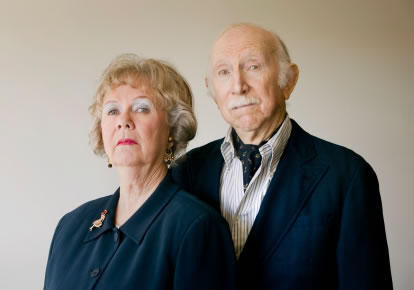
Image: iStockphoto
The hormones oxytocin and vasopressin are thought to affect how people behave toward each other. For example, lab tests have found that people play nicer in economic games after having oxytocin squirted up their nose. “This is an attempt to take this into the real world a little bit,” says Michael Poulin, of the University at Buffalo. He co-wrote the paper with Anneke Buffone of the University at Buffalo and E. Alison Holman of the University of California, Irvine. “We really haven’t seen it applied as much to broader-scale social behaviors—giving to charity, participation in the civic arena, and so on.”
Rather than squirting oxytocin up people’s noses to see if they grumbled less about jury duty, Poulin took advantage of the biology of hormones. Hormones work by binding to receptors in our cells. These receptors come in various forms; for the oxytocin receptor he was looking at, for example, there are two versions. The vasopressin receptor he studied has many forms.
The people in the study took part in an Internet survey with questions about civic duty, such as whether people have a duty to report a crime or pay taxes; how they feel about the world, such as whether people are basically good or whether the world is more good than bad; and about their own charitable activities, like giving blood, working for charity, or going to PTA meetings. 711 people provided a sample of saliva for DNA analysis, which showed what form they had of the oxytocin and vasopressin receptors.
People who think the world is a threatening place were less likely to help others—unless they had versions of the receptor genes that are generally associated with niceness. These nicer versions of the genes “allow you to overcome feelings of the world being threatening” and help other people in spite of those fears, Poulin says. There was no direct connection between genes and charitability or social attitudes. “Which is not surprising,” Poulin says. Most of the connections between DNA and social behavior are more complicated, and that was true in this case, too.
“What makes you think of one of your neighbors as a really generous, caring, civic-minded kind of person, while another is more selfish, tight-fisted, and not as interested in pitching in?” asks Poulin. Those neighbors’ DNA may help explain why one of them is nicer. “We aren’t saying we’ve found the niceness gene,” he says. “We have found a gene that makes a contribution, but I think there’s something cool about the fact that it only makes a contribution in the presence of certain feelings people have about the world around them.”
ᔥAssociation for Psychological Science
